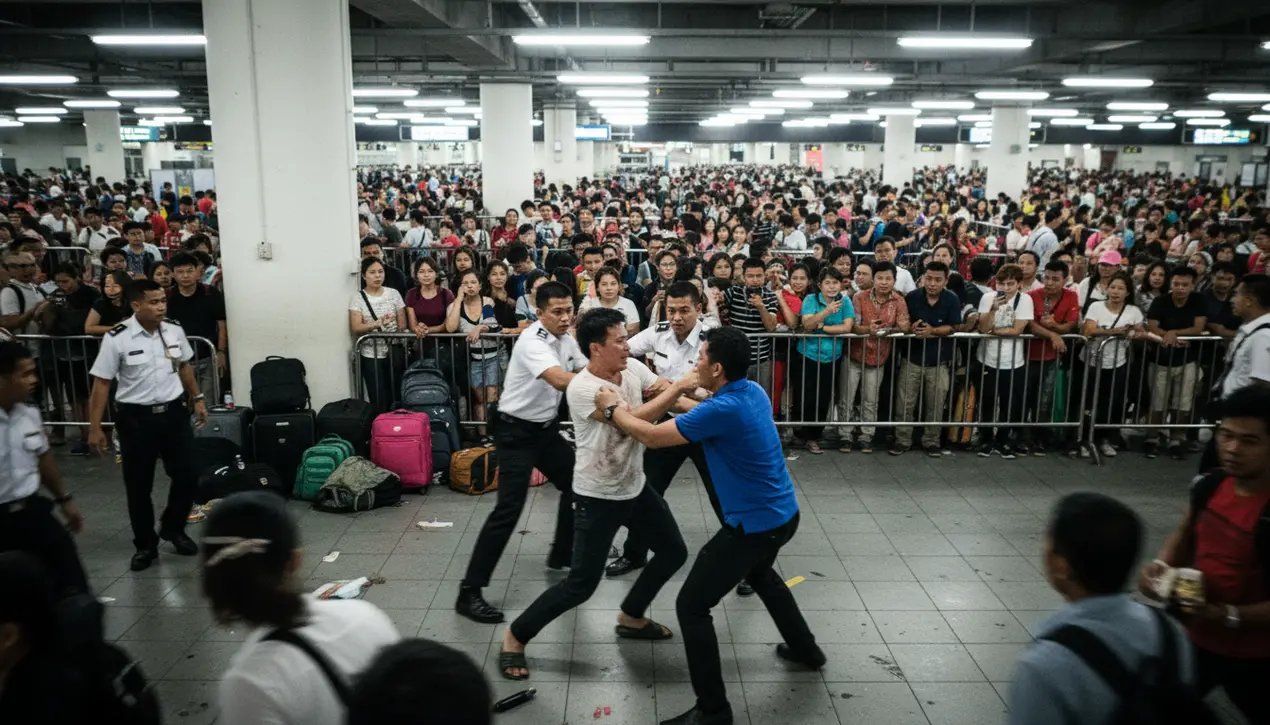
PoliticsdiplomacyBilateral Relations
Malaysia-Singapore border brawl highlights crossing congestion.
JO
John Parker
2 hours ago7 min read
The Malaysia-Singapore border, one of the world's busiest land crossings, has once again erupted into public consciousness not through policy announcements or diplomatic agreements, but through a raw, visceral brawl captured on viral video. The footage, showing two commuters wrestling on the terminal floor at Johor Bahru's CIQ complex, is more than just a shocking clip; it is a stark symptom of a deep-seated, systemic failure.This isn't an isolated incident of frayed tempers but the predictable outcome of chronic congestion that grinds down the spirits of hundreds of thousands who traverse this crucial artery daily. For the vast workforce of Malaysians who commute to Singapore for higher-paying jobs and the Singaporeans who travel north for leisure and affordable goods, the border is a place of routine ordeal.Wait times routinely stretch to two, three, or even four hours during peak periods, a brutal tax on time and mental well-being imposed by infrastructure that has catastrophically failed to keep pace with demand. The recent brawl serves as a potent metaphor for the escalating frustration, a physical manifestation of the silent screams muffled by the slow, shuffling queues.The root causes are multifaceted and long-ignored. On the Malaysian side, the Sultan Iskandar Building complex is often crippled by manual immigration counters and insufficient lanes, creating immediate bottlenecks the moment capacity is tested.The Singaporean checkpoint, while more technologically advanced, still faces immense pressure from the sheer volume. This congestion has profound economic and social ramifications.Malaysian workers face exhausting daily marathons that begin in the pre-dawn darkness, sacrificing family time and personal health, while Singaporean businesses, particularly in sectors like F&B and construction, grapple with unpredictable workforce arrivals. The historical context is crucial; this is a legacy issue.The RTS Link, a planned shuttle service between Johor Bahru and Singapore, promises relief but has been mired in delays, its 2026 operational date feeling like a distant mirage to those suffering today. Expert commentary from urban planners like Dr.Lim from the Institute of Southeast Asian Studies points to a lack of coordinated bilateral urgency, where political will has been sluggish in matching the explosive growth in cross-border movement. The consequences of inaction are escalating.Beyond public disorder, this sustained pressure cooker environment risks fostering broader social resentment and could eventually impact bilateral economic cooperation. The brawl is a breaking news alert in the truest sense—an urgent, unscripted signal that the status quo is untenable.It demands an immediate, high-level response from both governments to accelerate infrastructural solutions, streamline immigration processes with biometric automation, and implement dynamic traffic management systems. Without such decisive action, this single incident of violence will be merely the first flashpoint in a longer, more disruptive conflict born not of malice, but of sheer, avoidable logistical collapse.
#weeks picks news
#Malaysia
#Singapore
#border crossing
#congestion
#brawl
#transport
#infrastructure
Stay Informed. Act Smarter.
Get weekly highlights, major headlines, and expert insights — then put your knowledge to work in our live prediction markets.
Related News
Comments
Loading comments...
© 2025 Outpoll Service LTD. All rights reserved.